State Individual Income Tax Rates and Brackets, 2024
Individual income taxes are a major source of state government revenue, accounting for more than a third of state tax collections. How do income taxes compare in your state?
8 min readHow does Alabama’s tax code compare? Alabama has a graduated individual income tax, with rates ranging from 2.00 percent to 5.00 percent. There are also jurisdictions that collect local income taxes. Alabama has a 6.50 percent corporate income tax rate. Alabama has a 4.00 percent state sales tax rate and an average combined state and local sales tax rate of 9.29 percent. Overall, Alabama’s tax system ranks 40th on our 2024 State Business Tax Climate Index.
Each state’s tax code is a multifaceted system with many moving parts, and Alabama is no exception. The first step towards understanding the Alabama tax code is knowing the basics. How does Alaska collect tax revenue? Click the tabs below to learn more! You can also explore our state tax maps, which are compiled from our annual publication, Facts & Figures: How Does Your State Compare?
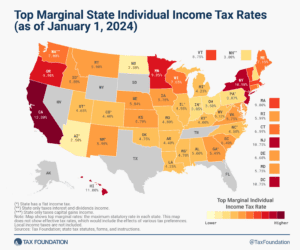

Individual income taxes are a major source of state government revenue, accounting for more than a third of state tax collections. How do income taxes compare in your state?
8 min read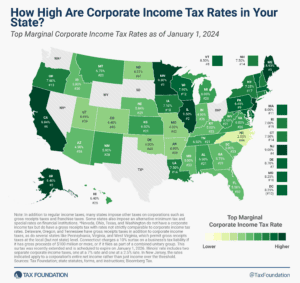

Graduated corporate rates are inequitable—that is, the size of a corporation bears no necessary relation to the income levels of the owners.
7 min read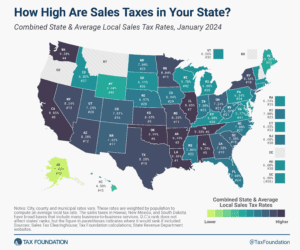

Retail sales taxes are an essential part of most states’ revenue toolkits, responsible for 32 percent of state tax collections and 13 percent of local tax collections (24 percent of combined collections).
9 min read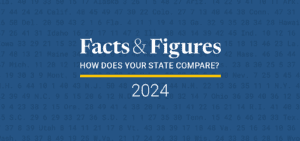

Facts & Figures serves as a one-stop state tax data resource that compares all 50 states on over 40 measures of tax rates, collections, burdens, and more.
2 min read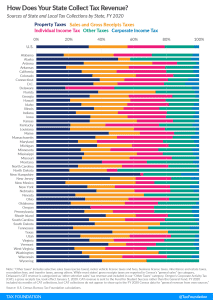

The mix of tax sources states choose can have important implications for both revenue stability and economic growth, and the many variations across states are indicative of the different ways states weigh competing policy goals.
29 min read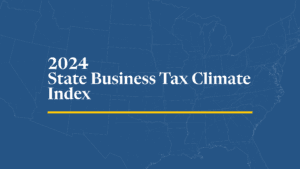


In recognition of the fact that there are better and worse ways to raise revenue, our Index focuses on how state tax revenue is raised, not how much. The rankings, therefore, reflect how well states structure their tax systems.
111 min read

What do The Rolling Stones, NFL star Tyreek Hill, and Maryland millionaires have in common? They all moved because of taxes.
4 min read




In recognition of the fact that there are better and worse ways to raise revenue, our Index focuses on how state tax revenue is raised, not how much. The rankings, therefore, reflect how well states structure their tax systems.
111 min read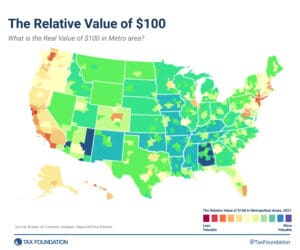

The differences in purchasing power can be large and they have significant implications for the relative impact of economic and tax policies across the United States.
3 min read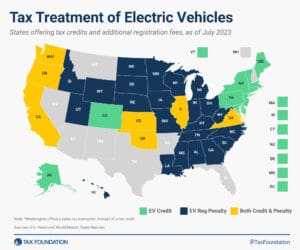

The state EV taxation landscape reflects the evolving transportation sector and the pressing need to address both fiscal gaps in road funding and environmental concerns.
4 min read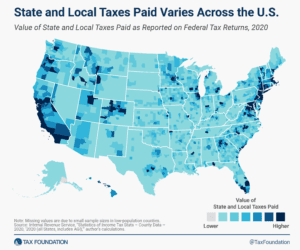

Any move to repeal the cap or enhance the deduction would disproportionately benefit higher earners, making the tax code more regressive.
5 min read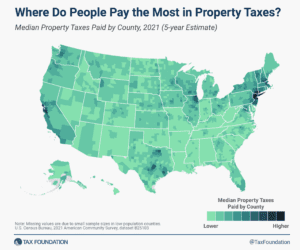

Property taxes are the primary tool for financing local governments and generate a significant share of state and local revenues.
6 min read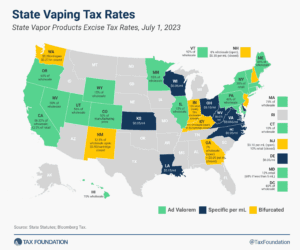

If the policy goal of taxing cigarettes is to encourage cessation, vapor taxation must be considered a part of that policy design.
3 min read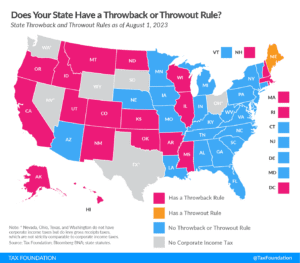

As more and more states move away from throwback or throwout rules, those states that still impose these rules are becoming less attractive for businesses, which are incentivized to relocate their sales activities to non-throwback states.
6 min read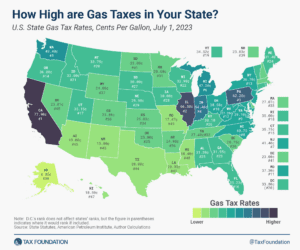

California pumps out the highest state gas tax rate of 77.9 cents per gallon (cpg), followed by Illinois (66.5 cpg) and Pennsylvania (62.2 cpg).
2 min read